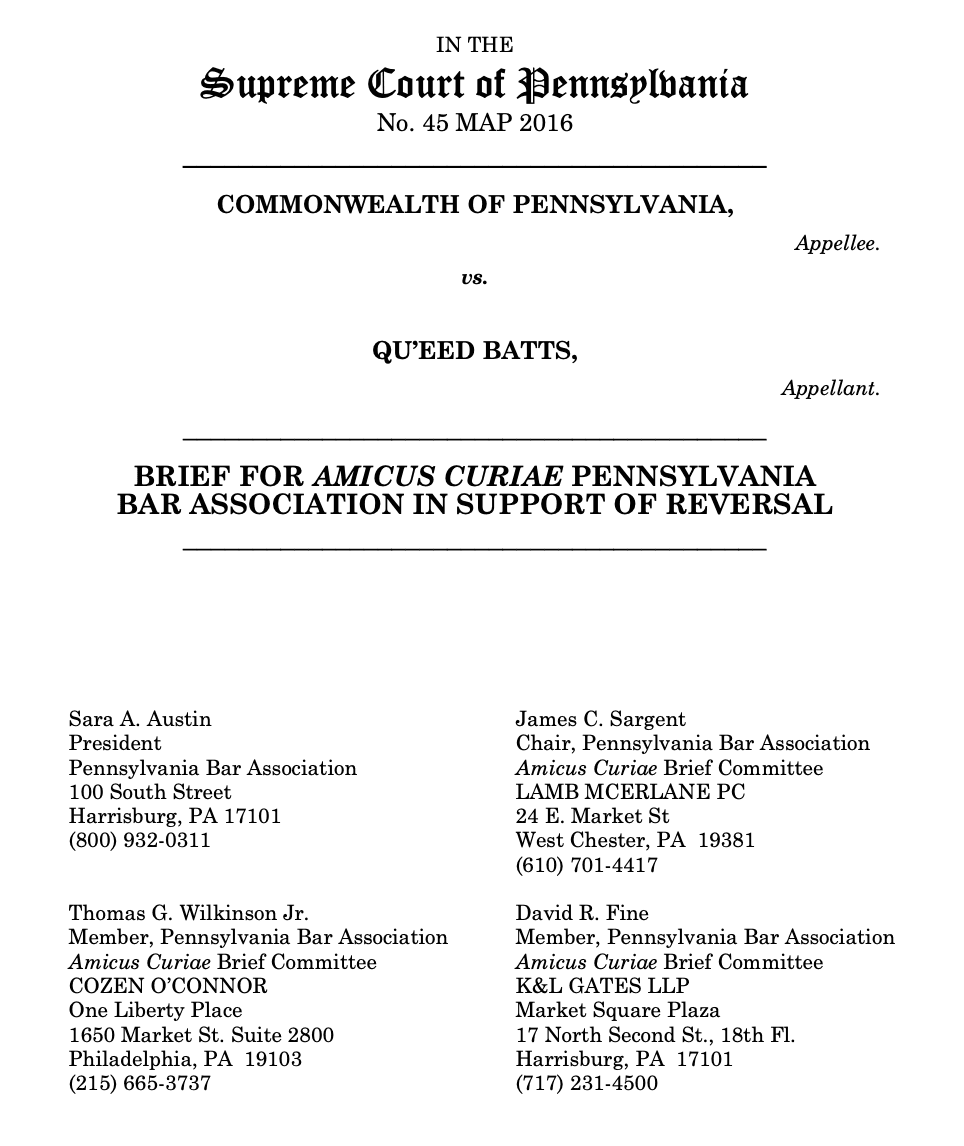
Summary of Argument
In Miller v. Alabama, 132 S.Ct. 2455 (2012), the U.S. Supreme Court held that the federal Eighth Amendment bars the imposition of mandatory life sentences without possibility of parole on defendants who were juveniles when they offended. In Montgomery v. Louisiana, 136 S.Ct. 718 (2016), the Supreme Court held that Miller’s new rule applies retroactively to sentences that were final when Miller was decided. Thus, as things now stand under federal jurisprudence, juveniles may only receive life sentences without possibility of parole (what are known as “LWOP” sentences) if the court first undertakes an individualized consideration of a number of factors set forth in Miller and Montgomery. In sum, these cases establish “that imposition of a State’s most severe penalties on juvenile offenders cannot proceed as though they were not children.” Miller, 132 S.Ct. at 2466.
These “juvenile-lifer” decisions require a significant undertaking by Pennsylvania courts in view of the fact that the Commonwealth has more juvenile LWOP inmates than any other state. Pennsylvania has hundreds of inmates sentenced to juvenile LWOP who must now be resentenced to constitutionally permissible sentences (or, in some cases, discharged from custody).
While Miller and Montgomery set forth broad constitutional rules and general guidance regarding what sentencing courts must consider, they left open important, interstitial details that courts such as this one must consider and resolve.
The Court’s order granting allowance of appeal makes clear that the Court intends in this case to address some of those issues. In particular, and most important for purposes of this brief, in Paragraph (1)(i), the Court accepted review of the following issues:
There is currently no procedural mechanism to ensure that juvenile LWOP will be “uncommon” in Pennsylvania. Should this Court exercise its authority under the Pennsylvania Constitution to promulgate procedural safeguards including (a) a presumption against juvenile LWOP; (b) a requirement for competent expert testimony; and (c) a “beyond a reasonable doubt” standard of proof?
In this brief, the PBA will urge that Court to adopt a clear, rebuttable presumption against juvenile LWOP and mandate that LWOP sentences may not be imposed on juvenile offenders unless the Commonwealth demonstrates beyond a reasonable doubt that the juvenile offender “exhibits such irretrievable depravity that rehabilitation is impossible and life without parole is justified.” Montgomery, 136 S.Ct. at 733.